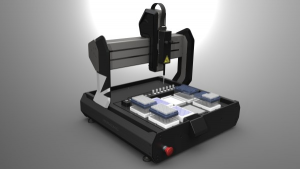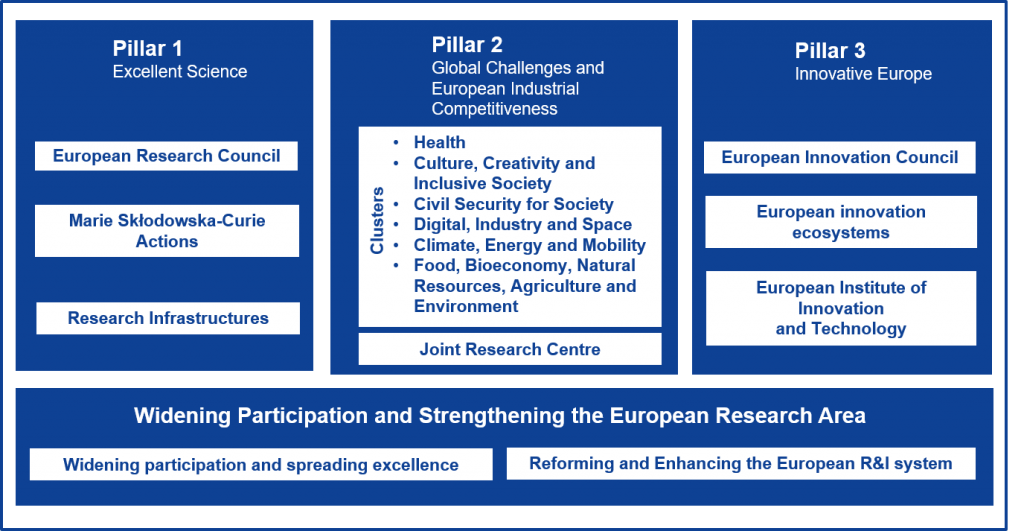European Innovation Agencies Make Plans to Strengthen Innovation
The European Innovation Council (EIC) and the European Institute of Innovation and Technology (EIT) have signed a letter of intent to coordinate efforts and strengthen Europe’s innovation services, pledging to build a “more integrated and inclusive EU innovation ecosystem for the benefit of EU innovators.”
Potential areas of cooperation are currently being tested in three €1 million pilot projects. The innovation agencies will finalise their collaboration in Spring 2021, before rolling it out in 2022.
Context
The EIC and EIT are complementary organisations, working towards the shared goal of translating Europe’s research strengths into jobs and growth. However, they operate in different ways:
- The EIT focuses on the integration of higher education, research, and innovation to address global challenges set in Horizon Europe. It has eight designated Knowledge and Innovation Communities, each of which addresses a specific societal challenge.
- In contrast, the EIC provides financial support for innovators. Its focus is on all areas of disruptive and breakthrough market-creating innovation.
A closer working relationship between the two institutions will enable companies from underperforming countries to secure more funding. As a result, this will help narrow the innovation gap between east and west Europe.
Significance
EU research commissioner, Mariya Gabriel, has labeled the move “a stepping stone in creating the European Innovation Area.” It marks a recognition that European innovation is vital. Innovative ideas key to tackling major societal challenges, including Covid-19 and climate change. They can also help Europe regain its position as a world leader in the field of innovation.
Please note: Negotiations are still ongoing to determine the UK's participation in Horizon Europe, the EU's next funding programme for research and innovation. However, UK scientists, researchers, and businesses can still apply for funding from the European Green Deal, the last and biggest call under Horizon 2020. You can read more about this competition here.
Source: Science|Business
European Green Deal: €1 billion available for innovative projects
One of the European Commission’s top priorities is to tackle climate change and make Europe climate-neutral by 2050. As a result, the Commission has launched a €1 billion call for research and innovation projects that respond to the climate crisis. Funded by Horizon 2020, the European Green Deal Call aims to drive Europe’s recovery from the coronavirus crisis by turning green challenges into innovation opportunities.
Due to the urgency of the challenges it addresses, the Green Deal Call aims for clear, discernible results in the short to medium-term, but with a perspective of long-term change. Therefore, there are fewer, but more targeted, larger and visible actions. The focus is on rapid scalability, dissemination, and uptake.
Scope
The projects funded under this call must deliver results with tangible benefits in ten areas. Firstly, there are eight thematic areas reflecting the key work streams of the European Green Deal:
- Increasing climate ambition
- Clean, affordable and secure energy
- Industry for a clean and circular economy
- Energy and resource efficient buildings
- Sustainable and smart mobility
- Farm to fork
- Biodiversity and ecosystems
- Zero-pollution, toxic-free environments
Secondly, there are two horizontal areas: strengthening knowledge and empowering citizens. They offer a longer-term perspective in achieving the transformations set out in the European Green Deal.
Furthermore, we are pleased to confirm that UK scientists, researchers, and businesses are eligible to apply for this funding. UKRI has confirmed that projects will receive funding for the lifetime of Green Deal projects, even if they continue beyond 31st December 2020 (when the UK’s period of transition out of the EU ends).
The closing date for applications is 26th January 2021, with selected projects expected to start in autumn 2021. For our assistance in putting together a competitive proposal, contact us today.
GeneFirst Awarded €2.8m in Horizon 2020 Grant Funding for Rapid Covid-19 Diagnostic
RedKnight are delighted to have supported GeneFirst with its successful application to Horizon 2020, securing the innovative med-tech start-up and its 4 collaborating partners (two SMEs and two hospitals) over €2.8m in grant funding. In total, 144 applications were submitted to the Innovative Medicines Initiative (IMI) competition, of which 8 projects have been selected for funding (6% success rate). The successful projects represent the most promising advances in therapeutics and diagnostics to combat the Covid-19 pandemic.
GeneFirst’s project, entitled RAPID-COVID, aims to clinically validate its innovative multiplex technology in both point of care and high throughput (HTP) settings, which includes testing for SARS-CoV-2. Based in Oxford, GeneFirst provides simple, reliable, and effective molecular solutions to aid the accurate diagnosis of diseases and the improvement of patient management.

As of July 2020, the COVID-19 pandemic has caused over 11 million infections globally, claiming more than 500,000 lives. In response to the current outbreak, a rapid and definitive diagnosis of the specific SARS-CoV-2 is crucial. A recent study has shown that 5.8% of SARS-CoV-2 infected and 18.4% of non-SARS-CoV-2-infected patients had other concurrent pathogen infections. Therefore, single target testing is not optimal; failure to distinguish between different pathogens may lead to unnecessary antimicrobial use, cross-infection of mis-grouped patients, and further spreading of the infection.
Simple, sensitive, and multiplex detection of all respiratory pathogens is technically challenging. In response to the need for faster and better detection of multiple respiratory pathogens, GeneFirst has developed a prototype using its innovative proprietary technology - MPA (Multiplex Probe Amplification). The prototype will simultaneously detect and differentiate SARS-CoV-2 as well as 30 other common respiratory bacteria and viruses.
GeneFirst’s assay will allow for accurate, cost-effective, and comprehensive diagnoses during the current outbreak, as well as future routine diagnosis. In this project, the consortium aims to analytically and clinically validate this assay on both high throughput and point of care platforms. This strategy provides maximum flexibility for screening and triage, allows better and faster care, alleviates pressures on healthcare systems, and improves patient recovery rates.
Dr Winnie Wu, COO at GeneFirst, said of the success,
“We are ecstatic with this outcome and all consortium partners are very excited to start the project. For an SME, securing this funding allows GeneFirst to further its R&D and to deliver these crucial diagnostics at scale and pace in time for the winter season. We have pulled together a great project team for the delivery.
We credit our bid success to the RedKnight team; without their support, we would not have been able to achieve what we did in the short time needed to submit the application. We found RedKnight to be professional and diligent, and it has been a real pleasure working with them. This is our first collaborative opportunity and I am confident that our partnership will continue into the future."
Helping companies grow is RedKnight’s core mission. You can find out more about the types of projects we support here.
Horizon Europe: New Horizons for European Funding
2020 marks the end of Horizon 2020, the EU’s biggest ever EU Research and Innovation programme, which has provided nearly €80 billion of funding over 7 years (2014-2020). Succeeding Horizon 2020, Horizon Europe will run from 2021 to 2027 to ensure that Europe remains a world-class leader in Research and Innovation. The European Commission will invest €100 billion into Research and Innovation that will shape the future of Europe, making it the most ambitious programme of its kind.
“With Horizon Europe, we want to build on this success and continue to make a real difference in the lives of citizens and society as a whole.”
-European Commission Vice-President Jyrki Katainen, responsible for Jobs, Growth, Investment and Competitiveness.
Preliminary Structure of Horizon Europe

Like Horizon 2020, the programme will have three pillars. The first will fund excellence in science, supporting frontier research projects designed by researchers through the European Research Council. The second pillar focuses on Global Challenges and European Industrial Competitiveness. It will support research into societal challenges and reinforce technological and industrial capacities. It also sets ambitious EU-wide missions to tackle some of Europe’s biggest problems, including health and climate change. Thirdly, the Innovative Europe pillar aims to increase Europe’s prowess in market-creating innovation and SME growth through the European Innovation Council.
Following the Horizon 2020 Interim Evaluation, the European Commission has implemented several changes to support Research and Innovation across Europe. For example, they will support breakthrough, high-risk innovation through the creation of the European Innovation Council. This will help innovators to create new market opportunities. Additionally, through the launch of new missions with bold, ambitious goals, Horizon Europe will create more impact across Europe. An open science policy will enable better science through collaborative ways of producing and sharing knowledge and data. Further, an emphasis on widening participation will help low Research and Innovation performing Member States to participate in Horizon Europe.
Despite the uncertainty caused by Brexit, we are hopeful that the UK will remain a part of the Horizon Europe research programme. If you'd like to discuss European funding with one of our specialist advisers, please do not hesitate to contact us today.
To stay updated on the grant funding landscape, sign up to our free monthly newsletter, and receive expert insights direct to your inbox.
Increase in funding for game-changing green innovation and woman-led companies…
A significant increase to the European Innovation Council (EIC) Pilot budget is expected to be adopted by the European Commission in March 2020, to support game-changing, market-creating innovation and deep-tech SMEs to scale-up, paving the ground for the launch of a ‘fully-fledged’ programme in Horizon Europe (2021 – 2027).
A one-off EIC Accelerator call for ‘green deal’ start-ups and SMEs is expected, whereby all applicants submitting for the 19th May 2020 cut-off will need to demonstrate how their innovation contributes to the goals of The European Green Deal. The 7th October 2020 cut-off for the EIC Accelerator Pilot will remain open to all innovations.
Additional opportunities for companies with women CEOs (or equivalent positions) is also expected, to ensure 25% of all finalists in the EIC Accelerator Pilot are women-led companies. If, following the first-round remote evaluation, a minimum of 25% of companies selected for the final-stage interviews are not led by women, additional interviews will be scheduled.
An advanced version of the amended EIC Work Programme is due to be released by the end of February, and the final version by the end of March, replacing plans for the year ahead in the current EIC Pilot Work Programme 2018 - 2020.
Important EIC Accelerator update for UK applicants...
The Withdrawal Agreement means that the UK can continue to participate in EU programmes, including Horizon 2020, that are financed by the 2014-2020 Multiannual Financial Framework (MFF) until their closure (i.e. for the lifetime of grants). UK participants will continue to receive EU grant funding for the lifetime of individual Horizon 2020 projects, including projects finishing after the transition period ends at the end of 2020.
UK scientists, researchers and businesses can continue to participate in and lead Horizon 2020 projects and apply for Horizon 2020 grant funding. The vast majority of Horizon 2020 projects will be able to continue as before during the transition period and beyond. This includes ERC, MSCA, and the EIC Accelerator. However, for the latter, UK entities are now only eligible for the grant element of the programme, meaning they cannot apply for equity support.
A very limited number of UK Horizon 2020 projects, which involve access to security-related sensitive information restricted for EU Member States, may be unable to continue after EU Exit in their current form. The government expects the European Commission to inform participants if this is the case.
